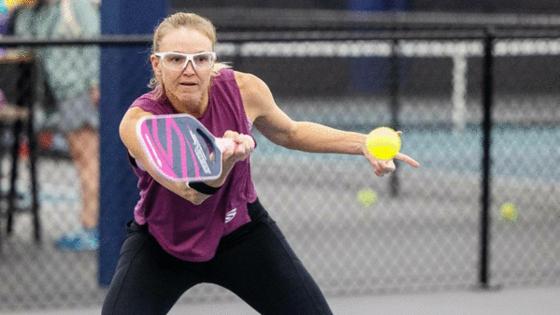Does pickleball noise constitute an 'auditory assault'? These homeowners say yes
Published in Lifestyles
BOISE, Idaho -- Pickleball noise has become a national scourge, The New York Times reported in June.
The noise from the sport, which has exploded in popularity in recent years, was a session topic at an annual noise control conference, is the focus of a Facebook group on “pickleball noise mitigation” with nearly 2,500 followers, and has sparked “unneighborly clashes” and lawsuits nationwide from neighbors at their wits’ end, the Times found.
Now it’s Boise’s turn.
In a tort claim filed Jan. 14, two Boise residents who live in a house near Willow Lane Park decried the city’s 2017 conversion of the park’s tennis courts into six pickleball courts. The courts, which are in constant use through the spring, summer and fall, create a “distinctive and oppressive noise profile” that makes them “entirely unsuitable” for placement near a residential neighborhood, the claim reads.
1. Who is complaining?
The plaintiffs, Kathleen Romito and Patrick Dougherty, said they have suffered property, physical and psychological damages because of the noise from the courts, which they documented in a YouTube video included with their claim.
“Prior to the installation of the Willow Lane Pickleball Courts, the claimants’ home was tranquil and peaceful. They enjoyed gardening in their backyard and spending their summer evenings on their patio, often while entertaining guests,” the complaint reads. Now, their home “has become unlivable for much of the year.”
Romito, a retired physician, serves on the scientific advisory council of Quiet Communities, where she focuses on the potential health effects of pickleball noise, and on the health and science advisory group of The Lasiewicz Foundation, which has focused on pickleball noise as a health concern and nuisance in recent years.
“Noise is the new ‘secondhand smoke’ and has myriad effects on our health,” Romito’s LinkedIn bio says. The “continuous, random auditory assault” she and her husband have faced has contributed to stress, anxiety, cognitive impairment and sleep disturbance, among other concerns, their complaint reads.
Romito and Michael Band, the homeowners’ attorney, declined to comment on the case, saying the city had not yet responded to their claim.
2. Why is pickleball noise a problem?
Pickleball uses a hard plastic ball and composite paddles that produce a “sharp, percussive ‘pop’ with every strike,” much louder than the noise of felt-covered tennis balls and netted rackets, the claim reads.
The decibel level and frequency of pickleball noise has an especially “intrusive” quality, the claim reads. The sound is “impulsive and unpredictable,” mimicking sounds humans are “hardwired” to notice, such as a knock or a sharp alarm. The “distinctive and disruptive” sound is “impossible to ‘tune out’ over time.”
The claim cites the advice of Carl Schmits, USA Pickleball’s managing director of equipment standards and facilities development. Schmits advised that pickleball courts be placed at least 200 feet away from homes. (The Willow Lane courts, located at 4623 Willow Lane, are only 57 feet away from Romito and Dougherty’s home.)
“Neighbors living within 250 feet of pickleball courts are more likely to report severe distress, including hearing phantom noises and a sense of feeling ‘tortured,’ ” Romito wrote in a blog post for Quiet Communities. “There is an increasing consensus that pickleball courts do not belong near homes.”
3. What did Boise do wrong, if anything?
Boise converted the park’s tennis courts into pickleball courts without giving neighbors a chance to weigh in, the claim says.
When neighbors complained, the city installed sound barriers on the fence surrounding the courts and prohibited play on Mondays and Tuesdays — but the barriers are “largely ineffectual,” the complaint reads, and the relative peace of the “off days” is offset by “the anxiety created by the impending resumption of the noise.”
Romito and Dougherty asked the city to prohibit pickleball at the park and convert the courts back to tennis courts, but the city has refused, the claim says.
4. What does the city say?
Bonnie Shelton, a spokesperson for Boise’s Parks and Recreation Department, declined to comment, citing pending litigation.
5. Does the couple want money?
The plaintiffs’ primary goal is to stop the pickleball noise, and they seek an injunction requiring the city to shut down the pickleball courts — along with about $1.6 million in damages that incorporate the loss of value of the plaintiffs’ home, psychological injuries sustained from the noise and loss of enjoyment of their home.
“As the conduct is ongoing, this figure is subject to increase,” the claim reads.
6. What is a tort claim, anyway?
A tort is a wrongful act other than a breach of contract for which victims may seek damages or an injunction, the Merriam-Webster dictionary says. Idaho law requires people who may sue the state or a local government to file claims to give government agencies the chance to address the complaint before a lawsuit is filed. Some claims are settled without becoming lawsuits.
©2025 Idaho Statesman. Visit at idahostatesman.com. Distributed by Tribune Content Agency, LLC.
























Comments